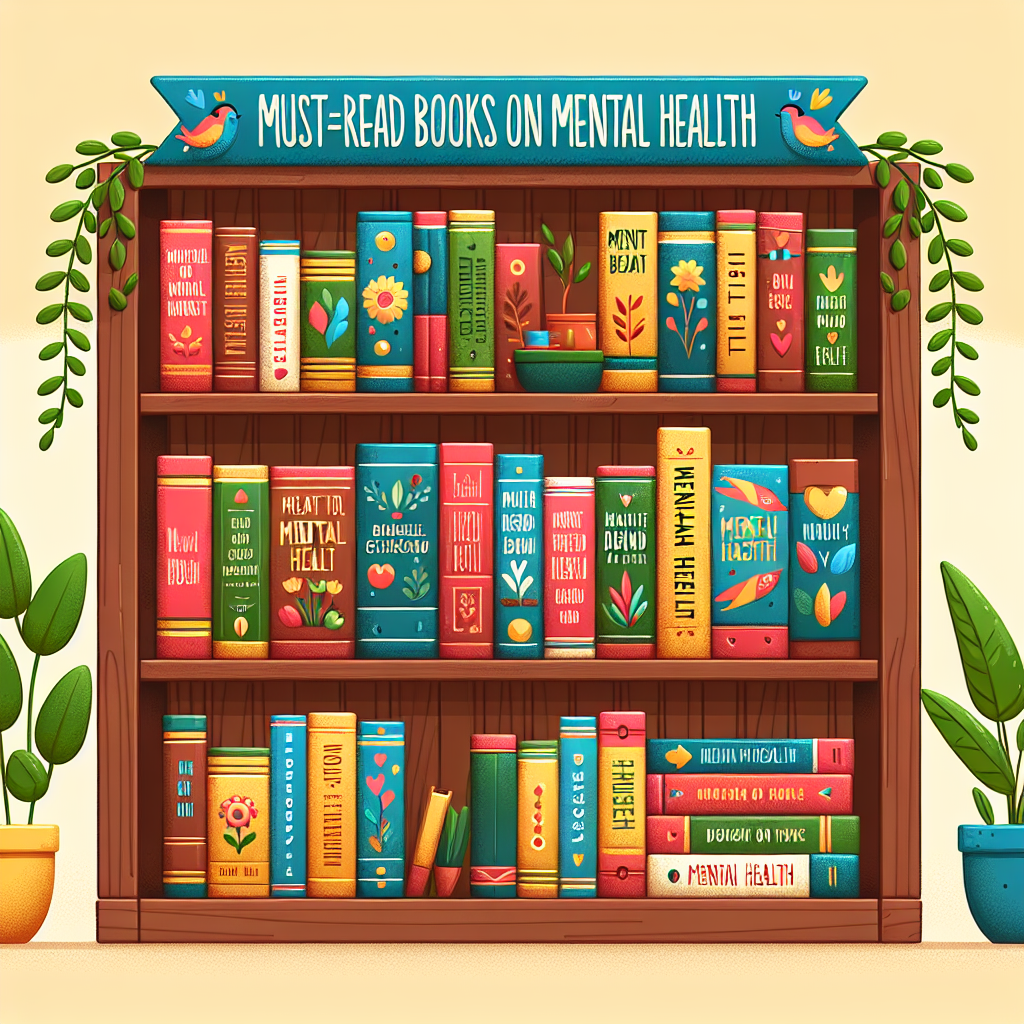As an Amazon Associate I earn from qualifying purchases.
12 Must-Read Books on Mental Health

Mental health is a crucial aspect of our overall well-being, yet it often goes neglected or misunderstood. Fortunately, there's a wealth of knowledge available for those looking to understand more about mental health issues, self-care practices, and the science behind our emotions and behaviors. Whether you're struggling with your own mental health, supporting someone who is, or simply interested in the subject, these 12 books offer valuable insights, practical advice, and heartfelt stories to guide you on your journey to better mental health.
Understanding Mental Health
Before diving into the list, it's important to recognize the significance of mental health awareness. Mental health issues can affect anyone, regardless of age, gender, or background. By educating ourselves and others, we can break down the stigma surrounding mental health, encourage open conversations, and promote a more compassionate society. Now, let's explore the must-read books that can enlighten us on this vital topic.
1. “The Noonday Demon: An Atlas of Depression” by Andrew Solomon
This groundbreaking book delves deep into the complexities of depression, combining personal narratives, interviews, and extensive research. Solomon's exploration of his own struggles and those of others offers a comprehensive view of depression's impact on individuals and society. It's a must-read for anyone seeking to understand this pervasive mental health issue.
2. “An Unquiet Mind: A Memoir of Moods and Madness” by Kay Redfield Jamison
As both a clinical psychologist and someone who lives with bipolar disorder, Jamison provides a unique dual perspective on mental illness. Her memoir offers an honest and profound insight into the realities of living with bipolar disorder, making it an essential read for those looking to grasp the nuances of mood disorders.
3. “The Body Keeps the Score: Brain, Mind, and Body in the Healing of Trauma” by Bessel van der Kolk
This influential book sheds light on the lasting impact of trauma on the body and mind. Van der Kolk, a leading expert on trauma, presents compelling evidence on how trauma reshapes both body and brain, potentially leading to addiction, depression, and other issues. His work emphasizes the importance of innovative therapies in healing trauma.
4. “Feeling Good: The New Mood Therapy” by David D. Burns
Based on the principles of cognitive-behavioral therapy (CBT), Burns' book offers practical strategies for overcoming depression, anxiety, and other mental health challenges. With its actionable advice and relatable examples, “Feeling Good” has helped millions transform their lives by changing their thoughts and behaviors.
5. “Lost Connections: Uncovering the Real Causes of Depression – and the Unexpected Solutions” by Johann Hari
Hari's book challenges conventional views on depression and anxiety, arguing that they are not solely caused by a chemical imbalance in the brain. Through engaging storytelling and rigorous research, Hari explores the role of disconnection from meaningful work, relationships, and values in mental health issues and proposes a radical way forward.
6. “Mind Over Mood: Change How You Feel by Changing the Way You Think” by Dennis Greenberger and Christine A. Padesky
This workbook-style guide empowers readers to improve their mental health through cognitive-behavioral therapy techniques. It's filled with practical exercises and worksheets that help individuals understand and manage their emotions, thoughts, and behaviors effectively.
7. “The Happiness Trap: How to Stop Struggling and Start Living” by Russ Harris
Harris introduces Acceptance and Commitment Therapy (ACT) in this accessible book, teaching readers how to live a fulfilling life by embracing pain and suffering rather than fighting against it. “The Happiness Trap” offers a fresh perspective on happiness and practical tools for mental well-being.
8. “Waking the Tiger: Healing Trauma” by Peter A. Levine
Levine presents a fascinating look at how the body can overcome trauma through somatic experiencing. By tapping into the body's innate ability to heal, “Waking the Tiger” offers hope and healing strategies for those affected by trauma.
9. “Reasons to Stay Alive” by Matt Haig
Haig's candid memoir about his battle with depression and anxiety is both uplifting and relatable. He shares his journey towards understanding his mental health and finding reasons to live, providing comfort and inspiration to those facing similar struggles.
10. “It's Kind of a Funny Story” by Ned Vizzini
This novel, inspired by Vizzini's own experience with hospitalization for depression, offers a unique and heartwarming perspective on mental illness. Through the story of a teenager who learns to navigate his mental health issues, Vizzini highlights the importance of hope and the power of human connection.
11. “The Man Who Couldn't Stop: OCD and the True Story of a Life Lost in Thought” by David Adam
Adam combines personal narrative with scientific research to explore the world of obsessive-compulsive disorder (OCD). His book provides a deep understanding of OCD's complexities and the challenges faced by those who live with it.
12. “Daring Greatly: How the Courage to Be Vulnerable Transforms the Way We Live, Love, Parent, and Lead” by Brené Brown
Brown's work on vulnerability, shame, and courage has touched millions. “Daring Greatly” explores how embracing our vulnerabilities can lead to stronger connections and a more authentic life. It's a powerful read for anyone looking to improve their mental health and relationships.
Conclusion
Mental health is a journey, not a destination. These 12 books offer diverse perspectives and approaches to understanding and managing mental health issues. From personal memoirs and practical guides to scientific explorations, each book provides valuable insights into the challenges and triumphs of mental health. By educating ourselves and engaging with these resources, we can foster a more compassionate and supportive environment for everyone affected by mental health issues. Remember, seeking help and starting conversations about mental health is a sign of strength, not weakness. Let these books be your companions on the path to better mental health.
Amazon and the Amazon logo are trademarks of Amazon.com, Inc, or its affiliates.






















































